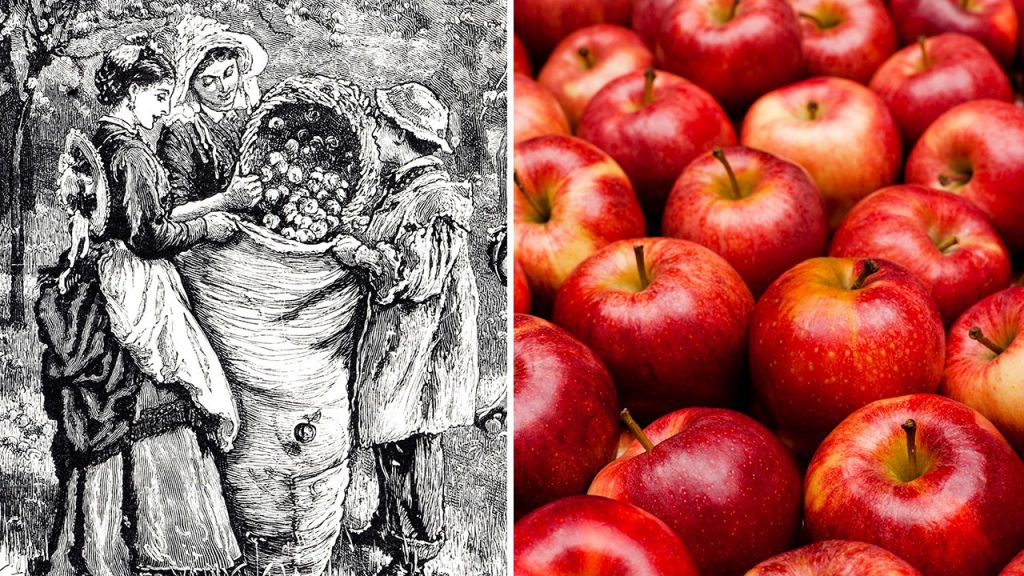In the 1620s, Reverend William Blaxton planted the first apple orchards in what is now the U.S. in present-day Boston. Blaxton, also known as Blackstone, settled Boston five years before the Puritans and Rhode Island a year before Roger Williams. He is credited with bringing the exotic crop of apples to American shores, leaving a lasting legacy on the nation’s heritage. Despite being a bookish and eccentric loner, Blaxton is recognized as a true pioneer in America.
Apples, although native to Central Asia, reached Europe before being brought to the Americas by Christopher Columbus during the age of exploration. The continent experienced a period of food fusion and cultural integration, leading to the introduction of new foods to different regions. Apples have become deeply ingrained in American culture, with references to the fruit found in city names, expressions like being “American as apple pie,” and legends like Johnny Appleseed spreading apples across the heartland.
Blaxton was known for his preference for solitude, often choosing the company of his apple trees and books over people. Despite being described as eccentric, he played a significant role in the early colonization and cultivation of apples in America. Blaxton arrived in Wessagusset, Massachusetts in 1623 before moving to the Shawmut Peninsula, present-day Boston, in 1625. His orchards were considered the earliest known American varieties, with fruits like the Roxbury russet, Rhode Island greening, and yellow sweeting likely originating from his plantings.
Blaxton’s life was marked by frequent moves and a preference for living alone. He married at age 64 and had a son, John, by age 65. Blaxton’s legacy lives on through the cultivation of apples in America, with his earliest known orchards influencing apple varieties that are still enjoyed today. He spent his days planting roots in Boston before uprooting himself and settling in Rhode Island. His move to Cumberland in 1635 granted him the distinction of being the first permanent English settler in present-day Rhode Island.
William Blackstone’s death in 1675 was followed by the naming of various landmarks and memorials in his honor, including streets, schools, and parks in Massachusetts and Rhode Island. The Blackstone River, which played a crucial role in the Industrial Revolution, is named after him. His legacy as a pioneer in apple cultivation continues to be celebrated, with apples symbolizing American bounty and roots deeply ingrained in the nation’s history. Apples teach a lesson of being alive and joyful on earth, serving as a reminder of home for pioneers and settlers across the continent.


